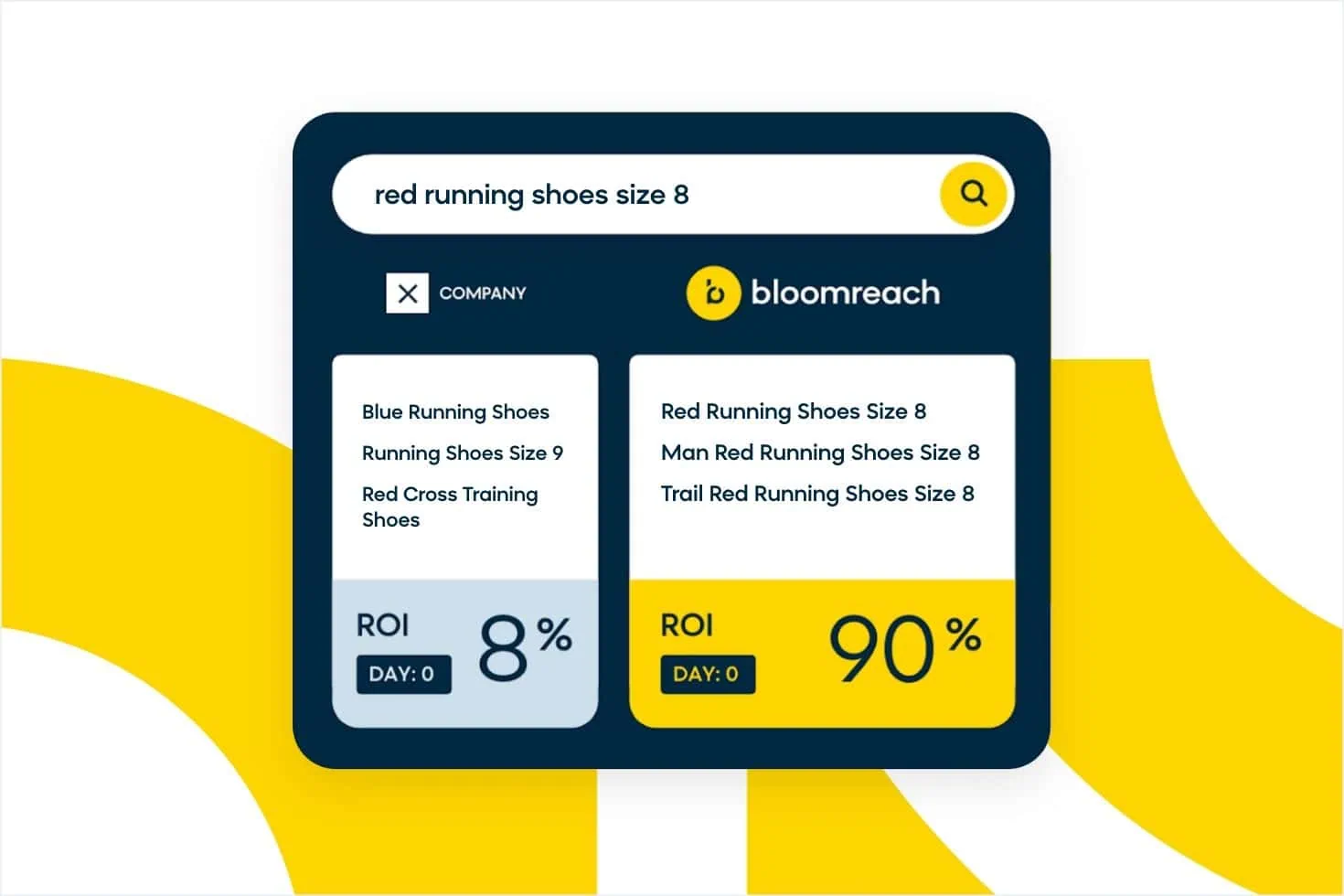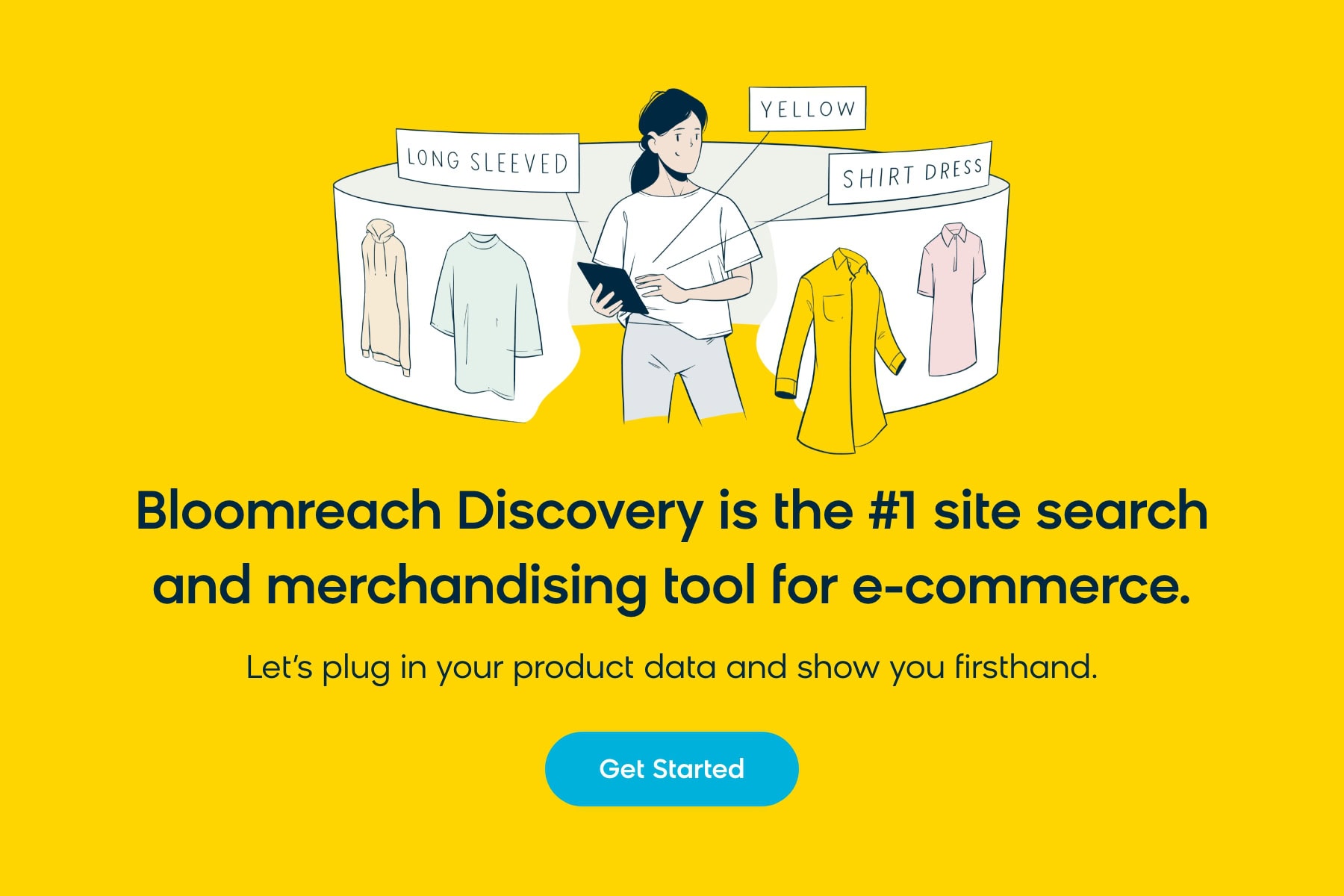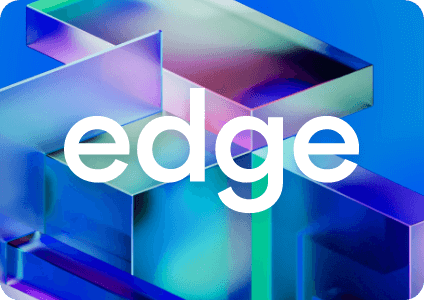When we think of search engines, Google search comes top of mind. But what if you could create a Google-like search engine right on your business’ website that focused on products? This is what site search is, and it gives customers a means to type in a desired product into the search bar on your ecommerce website and find what they’re looking for.
At least, that’s how it should work. Unfortunately, some search solutions remain too manual and struggle to maintain accuracy and relevance. Worse, they fail to get smarter over time since there’s no artificial intelligence (AI) or machine learning (ML) embedded in them. Last, but certainly not least, they’re unable to handle a high volume of queries or data since humans can’t process large amounts of information in real time in the same way that AI could.
Ultimately, if your team wants a more manual solution, you just have to accept the commitment that comes with it and have a highly devoted IT team on board to build, maintain, and refine your product search engine. Simply put, manual search engines are what you put into them.
However, if you want something easier to manage, more scalable, and more accurate and efficient for your ecommerce team, you can turn to AI search engines. An AI-driven search engine can process large amounts of data and queries in real time, anticipate user needs based on previous search patterns, deliver accurate and relevant results quickly, and automatically refine itself over time.
Whatever your approach to search, there’s absolutely no denying that site search remains important to the product discovery process. By providing customers with a convenient and efficient means of finding exactly what they’re looking for, site search enhances the overall user experience and helps drive customer satisfaction and brand loyalty. Not only does this mean more conversions and revenue, but this will also lead to increased revenue per visitor (RPV), higher average order value (AOV), and faster return on investment (ROI).
Before we get into the benefits of AI-based search engines, we’ll explore the core tenets of this innovative piece of technology.
What Is AI-Powered Site Search?
Instead of focusing on the jargon, let’s formulate a picture of an AI-powered site search tool through the below scenario.
Your customer is navigating an ecommerce site, hunting for that one specific item they’re hoping to find quickly and easily. In this case, it’s a “black waterproof Bluetooth speaker.” An AI-powered site search bar — which uses artificial intelligence to understand customer intent, sift through your product catalog, and offer the most relevant search experiences — should have no problem dissecting the query to discern that “speaker” is the product, while “black,” “waterproof,” and “Bluetooth” are its attributes.
Remember, this isn’t just a simple keyword match; it’s a deep dive into understanding the context and intent of your customer with the power of semantic understanding, which is a combination of natural language processing and machine learning.
Before we move on, here are two more market-specific examples to help illustrate the power of AI search:
B2C market: Imagine you’re shopping online for a pair of running shoes. You type “red running shoes size 8” into the search box. Instead of getting a random list of red shoes or all running shoes in size 8 with no red to be seen, an AI-powered site search bar will understand natural language queries well enough to show you products that match all of your criteria — red, running shoes, and size 8. It ensures you find your dream pair effortlessly and promptly without having to go to a store.
B2B market: For B2B buyers, the experience is a little different. They aren’t shopping for themselves, but rather for the company they work for. An AI-powered search engine is going to have to take even more context into account, including their industry, department, and product application. For example, a general practitioner searching for “syringes” will often be searching for hypodermic syringes for administering vaccines and medications, while a surgeon might be seeking a variety of surgical syringes instead. An AI-powered search bar will understand the context behind these searches based on segment data to provide relevant results to each respective doctor.
Despite the market you operate in, AI search can ultimately help guide your customers through an ocean of product information online to bring them exactly what they need, right when they need it.
How Does AI Power Search Engines?
To understand customer intent and product data, AI site search tools use a wealth of data to power their engines, resulting in more accurate and relevant search results. Here’s how it works:
It all starts with site search tools collecting data from a variety of sources, such as customer demographics and behavior, product information, and historical search data. This data forms the basis of the search tool’s knowledge, allowing it to understand what users are looking for by how they phrase their queries via natural language processing (NLP).
In addition to NLP, machine learning is another essential component of an AI search engine. It’s a type of AI that allows computers to learn and improve from experience without being explicitly programmed. In real time, ML algorithms analyze the data gathered by the search tool, identify patterns, and adjust the search engine’s behavior accordingly. The combination of NLP and ML makes semantic search possible.
So, if a customer types in a misspelled word, an AI search tool can use semantic understanding to comprehend what the user intended to type based on past searches and corrections. Similarly, if a particular product or page is often clicked on after a specific search, AI can learn to present that option more prominently in future similar searches. The result of this continuous, real-time learning is a fine-tuned ecommerce site search experience that gets better over time.
Here’s another B2C example where AI search can help in a major way — this time, we’ll use the grocery industry. For this industry in particular, AI search engines are like having an intuitive store clerk at your customer’s beck and call. First of all, it exhibits a deep understanding of context, accurately interpreting customer search queries and differentiating between similar-sounding items like “milk chocolate” and “chocolate milk.”
Second, AI site search understands that no two neighborhoods share the same tastes and preferences, and its ranking algorithm adapts intelligently to cater to local needs. It comes back to that friendly guide analogy — and the clerk who knows exactly what each customer in the neighborhood prefers. AI site search can also rerank products based on their availability, ensuring in-stock items get top billing in search results. This means customers spend less time wading through unavailable products and more time adding purchasable items to their carts.
Finally, AI-powered site search shows immense value to your grocery site’s returning customers and knows how to keep them coming back again and again. It remembers the products customers have previously purchased and provides personalized recommendations based on those successful conversions.
What Are the Benefits of AI-Powered Search?
AI-powered search tools offer a multitude of benefits to both customers and businesses, like the following:
- Increased Sales – When customers can find what they’re looking for quickly and easily, they’re more likely to make a purchase. AI search tools boost conversion rates by delivering relevant results and reducing the time between landing on your site and clicking the “purchase” button.
- Improved Customer Insights – The data gathered by AI search tools is a goldmine of information about your customers. You can learn about their preferences, buying habits, and common queries, enabling you to fine-tune your offerings and marketing strategies.
- Efficient Customer Support – AI can handle common queries, freeing up your customer support team to focus on more complex issues. This improves efficiency and ensures that every customer query is handled promptly and without issue.
- Cost Efficiency – Deploying an AI site search that’s already built and ready to implement can lead to significant cost savings in the long run. Not only are your engineers freed from a five-year (minimum) project, but your business can also reduce operational costs for your ecommerce team.
- Enhanced User Experience – AI-powered search engines are like a personal concierge. They understand your customer’s needs, anticipate their requests, and deliver search results with precision.
This all goes to show that AI-powered search is not just a tool; it’s a game-changer for your business. It enhances the customer experience while providing valuable insights that can drive business growth. So, whether you’re a small business owner or a leader in a large corporation, it’s worth considering how AI can take your site search — and your company — to the next level.
Why Is AI-Powered Site Search Better Than Traditional Site Search?
Now it’s time to delve into the key reasons why AI-powered site search outperforms more traditional, or manual, ecommerce site search tools.
- Superior Understanding of User Intent – When a customer types in a search query, they’re not just throwing random words into the void — they’re expressing a specific need or desire. Traditional search tools might struggle with anything but the most straightforward queries, but AI-powered search engines use NLP to understand the context and intent behind a search, ensuring that the results are truly relevant.
- Personalized Search Results – Ever noticed how some online stores seem to know exactly what you’re looking for? That’s AI at work. AI search can analyze a user’s past behavior and preferences to deliver personalized results. This 1:1 personalization isn’t all that’s possible with the right AI-powered search tool, either. It will also personalize the search experience by customer segments based on real-time behavior and for customers as they browse your ecommerce site.
- Real-Time Adaptability – Markets shift, trends change, and new products get launched every day. AI-powered search tools can learn and adapt in real time, adjusting its algorithms to reflect these changes in your business. This ensures that your tool stays aligned with your goals and that your customers always find what they’re looking for, even if it’s a product they didn’t know existed until moments ago.
Bloomreach Has the Best AI-Powered Site Search on the Market
By using AI-powered search tools, ecommerce businesses can deliver highly personalized and accurate search results that cater to their customers’ needs. Better yet, these search systems are adaptable in real time, so they can keep up with the latest market changes, consumer sentiment, and product availability to provide customers with a seamless shopping experience across the board.
With Bloomreach Discovery, businesses can take advantage of our powerful AI capabilities, using Loomi to increase customer engagement, conversions, RPV, AOV, and ROI. When customers can find what they need quickly and easily, their satisfaction with your business is sure to improve, and they’re more likely to remain loyal to your brand. With today’s macroeconomic environment in mind, this is a winning move for any ecommerce business.
Eager to see our AI site search tool in action, using your business’ very own data? Sign up for our Search Impact Validation today.




















